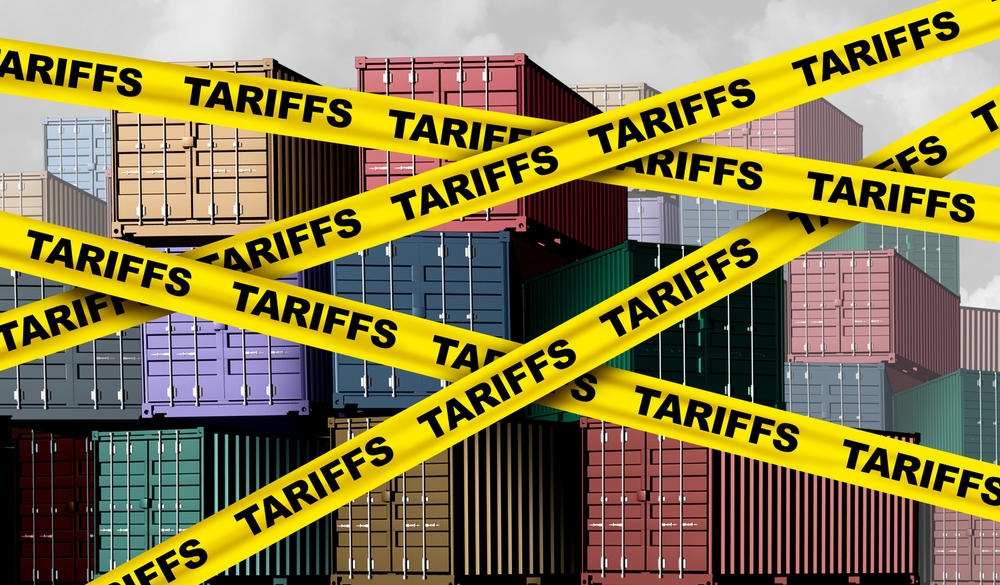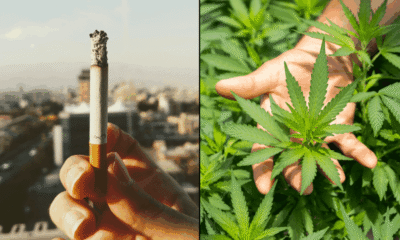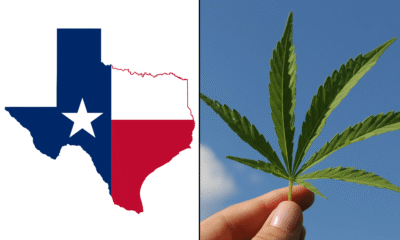As markets whipsaw in memecoin-fashion since the beginning of President Donald Trump’s on-again, off-again tariffs against various other nations, cannabis executives are navigating the recent surge in U.S. levies, particularly on Chinese goods.
Marijuana businesses have been reacting with relatively less alarm than other sectors, partially due to the industry’s domestic supply chain advantages and experience with previous market disruptions during the COVID-19 pandemic.
Still, that’s not to say the latest tariff against China – a major supplier of U.S. cannabis hardware – wouldn’t do damage to the marijuana trade. But it’s still up in the air of how that shapes the future if it’s subject to change at any point in time, especially as a new 90-pause on the rest of Trump’s tariff list slows the bleeding in any ways.
Ari Raptis, founder of cannabis logistics company Tulare Transportation, noted that uncertainty is the biggest challenge facing operators as tariffs create cost instability for essential imported items.
That goes for “items like vape cartridges, packaging and hardware, most of which are still heavily reliant on overseas manufacturing,” Raptis said. “Margins are already thin and now they’re asked to absorb or pass along additional costs, often without much lead time or clarity.”
The company, which handles around $1.2 billion worth of cannabis products annually across 28 states, has observed partners struggling with delayed shipments and sudden price increases.
“Even companies that want to shift sourcing to the U.S. are finding it hard to do it so quickly. It’s not a plug and play situation. Domestic infrastructure isn’t fully built out yet for the volume of compliance needs for cannabis,” he said.
The question of who absorbs these additional costs remains contentious throughout the supply chain.
“Someone has to absorb the shock, whether it’s a tariff, a fuel increase, supply chain delays,” Raptis explained. “Right now, the pressure is getting passed around like a hot potato between importers, manufacturers, distributors and retailers.”
One potential upside of the situation is cannabis stocks may be somewhat insulated from tariff concerns due to their already depressed valuations, suggested Anthony Coniglio, CEO of NewLake Capital (OTCQX: NLCP).
“These stocks are already priced for price compression and margin compression well beyond what would happen in tariffs,” he noted. “In a normalized sector, investors would be adjusting profit expectations and therefore price targets for stocks. But since cannabis is already in an oversold position, we shouldn’t see that come into play for the cannabis sector.”
Additionally, the impact varies significantly across different ancillary marijuana businesses that deal in services instead of cannabis goods.
Companies like TILT Holdings (Cboe: CA:TILT) (OTCQB: TLLTF), which still relies heavily on hardware from China, unlike others, has seen its stock drop around 42% over a five-day period following Trump’s tariff announcements. By contrast, digital platforms like Weedmaps – with minimal foreign supply chain exposure – saw only a 3% decline in the same period.
Both Raptis and Coniglio pointed to the industry’s experience during COVID-19 as evidence of its general adaptability.
“During COVID, everyone’s home; these businesses were declared essential and there was a growth spurt for the industry. And so they had to weather through the supply chain disruption, not just to keep their current business alive, but to grow their business,” Anthony said.
Raptis agreed that the industry has become more resilient due to the pandemic years.
“We’re seeing an uptick in demand for shared warehouse space and fulfillment solutions to reduce exposure to shipping disruptions,” Raptis said. “The sentiment is frustrating but pragmatic. The industry is used to working through headwinds and tariffs are just the latest.”
For cultivators and dispensaries, tariff impacts may be limited versus other industries.
“On the cultivation side, on the dispensary side, it’s much less. But 5% to 7%, call it, their expenses will go up. If they can pass some of that on to the consumers or the customers of theirs, then you should only see a few percentage point impact on margin,” Anthony explained.
At the same time, newly-licensed operators in emerging markets like Kentucky could face greater challenges, as they’re just beginning to build out their facilities and may need to purchase equipment potentially affected by tariffs.
Overall, industry leaders are preparing for ongoing trade tensions while remaining hopeful that the situation isn’t as dire as it first appeared.
“We always take the approach that you prepare for the worst and hope for the best,” Anthony said. “When I look at this tariff dialogue, while I believe that the worst will not come to pass, I do think when it comes to China, all signs point to a prolonged tariff confrontation.”
For Raptis, the future will reward companies that prioritize logistics.
“The next wave of growth will come from companies that turn logistics into strength and not an afterthought,” he said.

 California Cannabis Updates1 year ago
California Cannabis Updates1 year ago
 Breaking News1 year ago
Breaking News1 year ago
 best list1 year ago
best list1 year ago
 Business1 year ago
Business1 year ago
 Business1 year ago
Business1 year ago
 cbd1 year ago
cbd1 year ago
 Bay Smokes1 year ago
Bay Smokes1 year ago
 autoflower seeds1 year ago
autoflower seeds1 year ago

















































